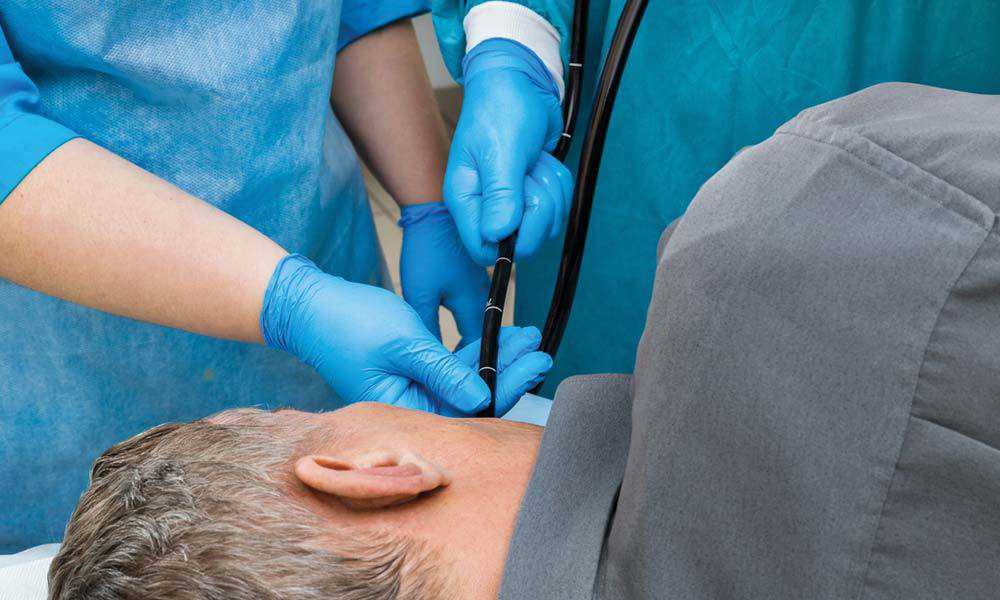
Colorectal cancer is the third most common cancer diagnosed in both men and women in the United States. It is also the third leading cause of cancer death, behind lung and prostate cancers. In many cases, colorectal cancer can be cured if it is detected early. That's why it's so important for people over 45 to get a colonoscopy regularly – because this is the age group where colorectal cancer is most likely to occur. A colonoscopy can detect precancerous polyps in the colon, which can then be removed before they have a chance to turn into cancer cells. So if you're over 45, please don't put off your colonoscopy – it could save your life!
What is a colonoscopy and why is it important for people over 45 years old to get one done every five years as part of their regular health check-ups?
A colonoscopy is a medical procedure in which a doctor inserts a long, thin tube into the colon in order to examine the colon for any abnormalities. Colon cancer is one of the most common forms of cancer, and it is estimated that about 1 in 20 people will develop colon cancer in their lifetime. However, colon cancer is also one of the most preventable forms of cancer, and the earlier it is caught, the easier it is to treat. That is why colonoscopies are so important for people over the age of 45. By getting a colonoscopy every five years, people can dramatically reduce their risk of developing colon cancer. In addition to colon cancer, colonoscopies can also detect other problems, such as polyps, which are non-cancerous growths that can become cancerous if left untreated. Therefore, colonoscopies play an essential role in maintaining good colon health.
What are the benefits of getting a colonoscopy done on a regular basis - can it help prevent cancer or other diseases from developing in the future?
A colonoscopy is a procedure used to visually examine the lining of the colon and rectum for abnormalities. It is important to get a colonoscopy on a regular basis because it can help prevent colon cancer or other diseases from developing in the future. Colon cancer is the third most common cancer in men and women in the United States. Screening tests, like colonoscopies, can help find colon cancer early when it is most treatable. A colonoscopy can also find and remove precancerous polyps before they turn into cancer. In addition to colon cancer, a colonoscopy can also detect other diseases of the colon, such as Crohn's disease and ulcerative colitis. If you have any family history of colon cancer or other diseases of the colon, you should talk to your doctor about getting a colonoscopy on a regular basis.
How does a colonoscopy work, and what are the risks associated with having one done?
A colonoscopy is a medical procedure used to detect and diagnose colon cancer. The colon, which is the large intestine, is first cleansed with a special liquid solution. This helps to empty the colon of all solid matter, which can interfere with the colonoscopy. Once the colon is empty, a colonoscope - a long, thin, flexible tube - is inserted into the rectum and passed through the entire length of the colon. The colonoscope has a light and camera attached to it, allowing the doctor to get a clear view of the inside of the colon. If any abnormal growths or polyps are detected, they can be removed during the procedure. Although colonoscopies are generally safe, there is a small risk of bleeding or perforation of the colon. Complications from colonoscopies are rare, but they can occur. Therefore, it is important to discuss all risks and benefits with your doctor before having a colonoscopy.
Who should not have a colonoscopy - are there any people who shouldn't get one done for medical reasons?
Colon cancer is one of the leading causes of death in the western world, yet it is also one of the most preventable forms of cancer. While colonoscopies are generally safe and effective, there are some people who should not have the procedure for medical reasons. These include people with certain bleeding disorders or those who are at risk for stroke. In addition, people with severe heart or lung disease may be ineligible for colonoscopy due to the risks involved. However, in most cases, colonoscopy is a safe and effective way to detect colon cancer early, when it is most treatable. If you are over the age of 45 or have a family history of colon cancer, talk to your doctor about getting a colonoscopy.
How much does a colonoscopy cost, and is it covered by insurance plans or Medicare in most cases?
The cost of a colonoscopy varies depending on the facility where it is performed, the type of insurance coverage you have, and whether or not Medicare or Medicaid covers the procedure. In most cases, colonoscopies are covered by insurance plans, but there may be some out-of-pocket costs depending on your specific plan. Medicare typically covers colonoscopies that are considered medically necessary, but again, there may be some out-of-pocket costs depending on your situation.
While the cost of a colonoscopy may seem high, it is important to remember that this procedure can save lives by detecting colon cancer at an early stage when it is most treatable. If you are 50 years of age or older, have a family history of colon cancer, or are experiencing symptoms like blood in the stool, abdominal pain, or weight loss, talk to your doctor about getting a colonoscopy.
